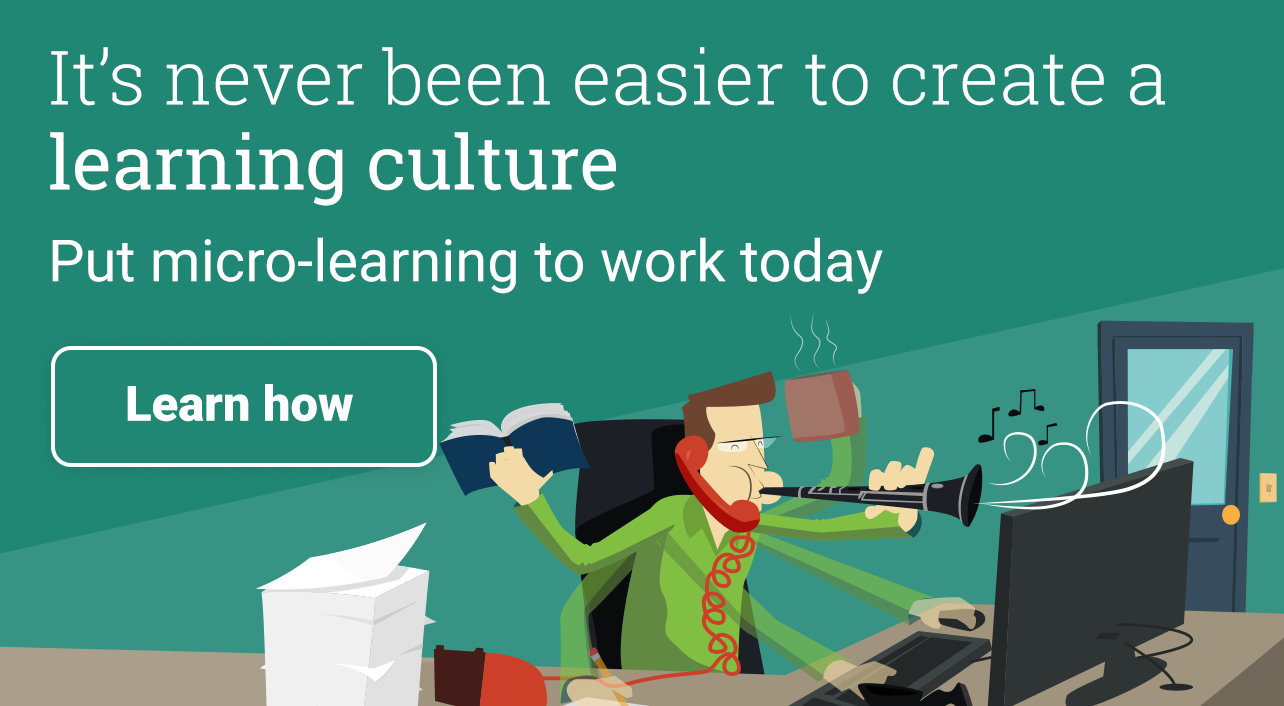- rli
- Blog post
So many resources, so little time. How to help learners stay focused
Learners now have more resources at their fingertips than ever before. Perhaps too many. In addition to the on-demand and in-person learning opportunities that you and your organization provide, there’s no shortage of online and in-print material for learners to access.
In many ways, this is an incredible boon for both trainees and learning organizations. But it can also be overwhelming for your learners. With so many options, it can be difficult to know what to focus on or what resource to invest their valuable time in.
Fortunately, the findings of a recent research study offer a proven strategy for helping learners navigate this important step of the learning process. And you can share the results to help guide learners on making the most of their study and practice habits.
The research
A team of researchers conducted the study in a Stanford University statistics class. They wanted to determine if a simple intervention could help learners make smart, effective choices about the reinforcement resources they used.
The researchers divided the students into two groups – the control group and the intervention group. The control group experienced the class as normal. The intervention group received a survey about a week before the class’s final exam. The survey asked students to record their goals – specifically, what grade they wanted to get on the exam and how important it was to them to achieve their goal. Then it asked them to think about what kind of questions would be on the exam and how they would prepare.
Importantly, it asked the students what resource or resources they would use to prepare for the exam, why it was the right resource, and how and when they planned to use it.
After grading the exam, the results were clear. The students who filled out the survey and made specific study and practice plans scored roughly 4 percent higher on the final exam. They also expressed much higher confidence in their study strategy because they had a concrete plan and were monitoring its effectiveness throughout.
The head researchers concluded, “Goal achievement – be it accomplishing a task at work, performing well in school, or losing weight – depends to a large extent on how tactical we are at using our resources and also how effective we are at practicing strategic self-management… Anybody can benefit from being self-reflective in their goal pursuit and thoughtful about the way they use their resources.”
Recommendations
Below are some recommendations on how to use the research and put the results of the study to work in your organization.
Set specific goals after each learning session. After learners are introduced to a new topic, reinforcement and practice are essential to making the knowledge stick. So consider asking your learners to create concrete goals for how to improve and enhance what they’ve just learned. For example, ask them to identify what they see as the challenges they’ll face or the weak points they’ll need to shore up in order to master the new skill. Then help them turn those challenges into goals.
Use or seek out resources that support the goals. Now that learners have identified what they need to work on, ask them what specific resources they’ll use to help them improve. The resource could be the original content you provided them, or an outside resource like a book or online module, or it could be a mentoring session with a more experienced colleague. Whatever it is, make sure it specifically addresses the learner’s challenge and helps them achieve their goal.
Make a plan. Once you’ve defined the what – the goals and the resources to support those goals – it’s time to form a plan by solidifying the how and when. Encourage learners to write down a specific plan of how they will use the resource and when. For example: I will re-watch the e-learning module tomorrow on my lunch break and then again two days later. Or, I will read the appropriate chapter of the book during my morning commute and I’ll keep it in my bag for when I need another refresher.
Source
Chen, P., et al. (2017). Strategic resource use for learning: A self-administered intervention that guides self-reflection on effective resource use enhances academic performance. Psychological Science, 28(6), 774-785.

Get a demo of all our training features
Connect with an expert for a one-on-one demonstration of how BTS Total Access can help develop your team.




1 Comment
Sticking to a plan definitely pays huge dividends in your accomplishments. There are SOOOO many resources and tools both in books and on the internet, know how to select one and be realistic!!!